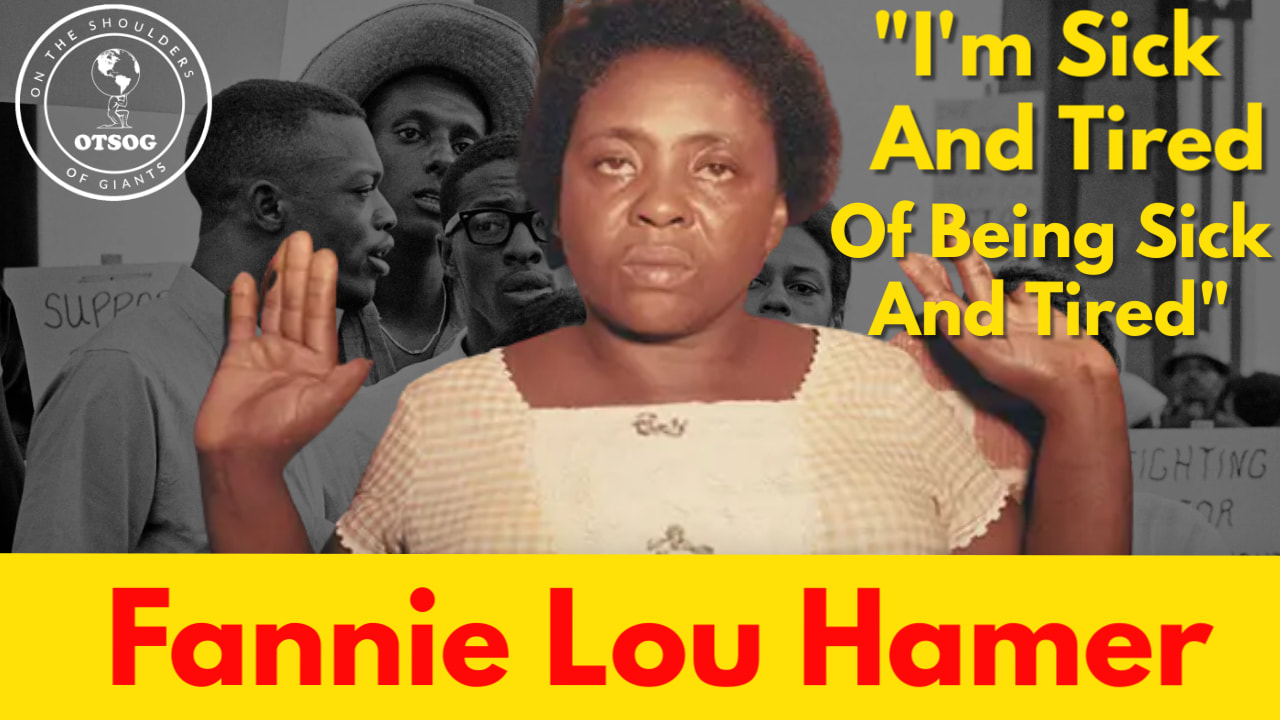|
On October 6, 1917, Fannie Lou Hamer was born on in Montgomery County, Mississippi. At the age of six, she started working to help her family earn money to survive. At twelve, she dropped out of school to work full-time with her family. In 1944, Fannie would marry Mr. Perry “Pap” Hamer, and the couple worked as sharecroppers on a cotton plantation in Ruleville, Mississippi. They never had children because Fannie was unknowingly given a hysterectomy during surgery to remove a tumor. This act was against her will and a violation of her human rights. The summer of 1962 would change her life forever. She attended a meeting where blacks were protesting the poll tax used to keep them from voting. After attending the meeting she decided to dedicate herself to helping end the oppression. In 1962, she traveled with 17 other people to Indianola, Mississippi to the courthouse to oppose the poll tax. They were met with resistance by the local law enforcement officers. Because Fannie was fighting against the poll tax she was fired from her job and kicked off the plantation where she lived for 20 years. Those actions did not deter her one bit, she spoke about the incident stating; “They kicked me off the plantation, they set me free. It’s the best thing that could happen. Now I can work for my people.” The rest of Fannie’s life was dedicated to the Civil Rights movement. She worked with The Students Nonviolent Coordinating Committee (SNCC). They often joined together to fight segregation in the local towns they visited. During her fight for justice, she was beaten, arrested, threatened, and shot at; but Fannie pressed on. In 1963, she was severely injured while in police custody. Fannie was beaten by the police, suffering kidney damage as a result of the brutality. Despite the constant violence, Fannie still fought for her people. She helped to fund the Mississippi Freedom Democratic Party in 1964, which opposed an all-white delegation. During a televised convention session, Fannie brought national attention to the plight of the blacks in Mississippi. Later in 1964, she would run for congress but was unsuccessful in her efforts. Fannie worked with a number of black organizations to create business opportunities and child care for black families in Mississippi. In 1971, she helped create the National Women’s Political Caucus to organize her people politically. In 1976, she was diagnosed with breast cancer but continued fighting for civil rights. Fannie Lou Hamer died in 1977 leaving behind a legacy as a hero, a champion, and an inspiration to us all. She stood toe-to-toe with oppression and cancer, but never backed down. She refused to live and think like a slave. She was a proud free black woman. She stood up for our rights then so that we can stand for our rights now. Mrs. Fannie Lou Hamer, we proudly stand on your shoulders. J.A. Ward Click here to support the OTSOG book series.
0 Comments
Leave a Reply. |
Details
Categories
All
Click Here to join our mailing list
|
Contact Us: |
Connect With Us |
Site powered by PIT Web Design


 RSS Feed
RSS Feed



